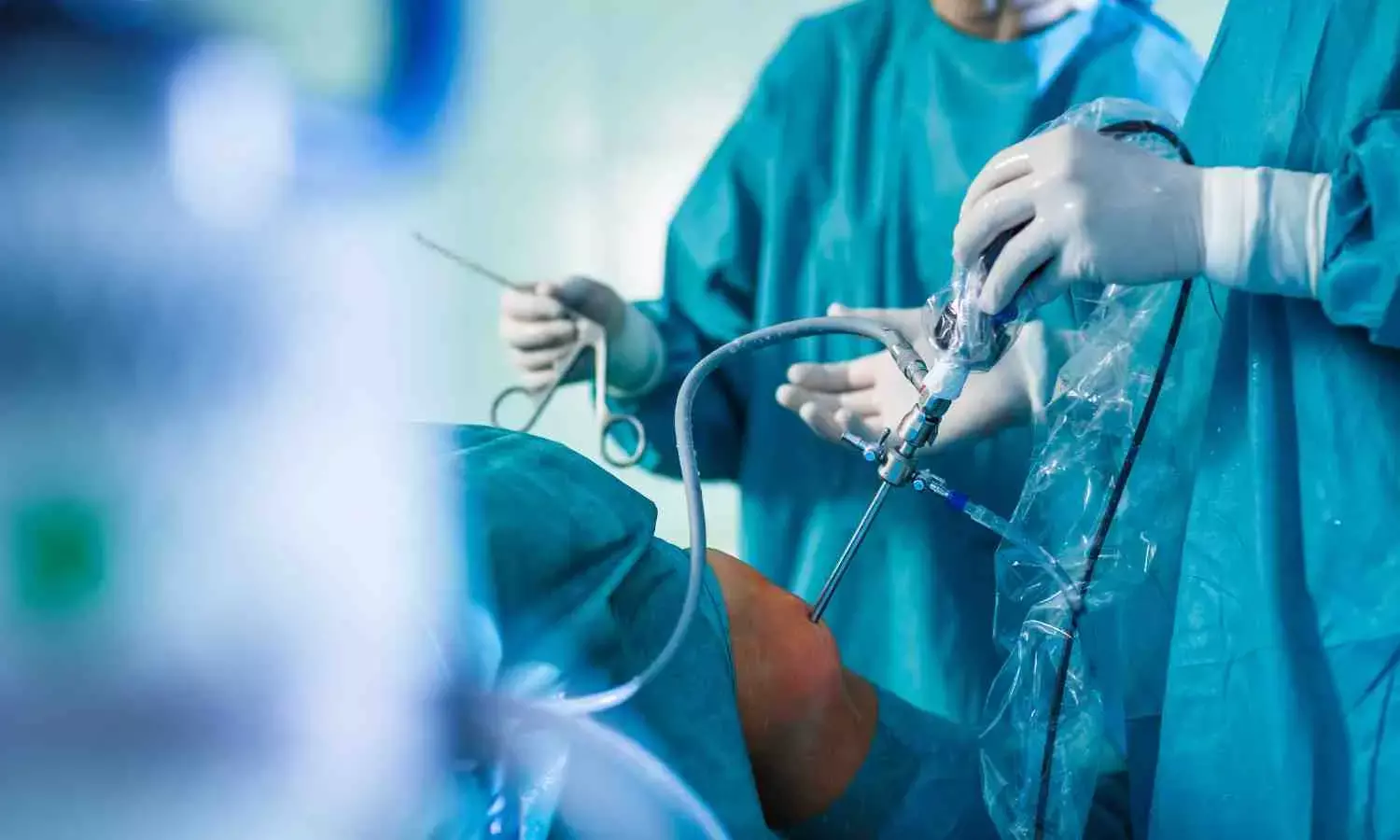- Home
- Medical news & Guidelines
- Anesthesiology
- Cardiology and CTVS
- Critical Care
- Dentistry
- Dermatology
- Diabetes and Endocrinology
- ENT
- Gastroenterology
- Medicine
- Nephrology
- Neurology
- Obstretics-Gynaecology
- Oncology
- Ophthalmology
- Orthopaedics
- Pediatrics-Neonatology
- Psychiatry
- Pulmonology
- Radiology
- Surgery
- Urology
- Laboratory Medicine
- Diet
- Nursing
- Paramedical
- Physiotherapy
- Health news
- Fact Check
- Bone Health Fact Check
- Brain Health Fact Check
- Cancer Related Fact Check
- Child Care Fact Check
- Dental and oral health fact check
- Diabetes and metabolic health fact check
- Diet and Nutrition Fact Check
- Eye and ENT Care Fact Check
- Fitness fact check
- Gut health fact check
- Heart health fact check
- Kidney health fact check
- Medical education fact check
- Men's health fact check
- Respiratory fact check
- Skin and hair care fact check
- Vaccine and Immunization fact check
- Women's health fact check
- AYUSH
- State News
- Andaman and Nicobar Islands
- Andhra Pradesh
- Arunachal Pradesh
- Assam
- Bihar
- Chandigarh
- Chattisgarh
- Dadra and Nagar Haveli
- Daman and Diu
- Delhi
- Goa
- Gujarat
- Haryana
- Himachal Pradesh
- Jammu & Kashmir
- Jharkhand
- Karnataka
- Kerala
- Ladakh
- Lakshadweep
- Madhya Pradesh
- Maharashtra
- Manipur
- Meghalaya
- Mizoram
- Nagaland
- Odisha
- Puducherry
- Punjab
- Rajasthan
- Sikkim
- Tamil Nadu
- Telangana
- Tripura
- Uttar Pradesh
- Uttrakhand
- West Bengal
- Medical Education
- Industry
Use of weight loss drugs before bariatric surgery has soared in recent years, study finds

New research findings show a significant increase in the use of weight loss drugs among patients undergoing metabolic and bariatric surgery, signaling an evolution in the management of obesity and Type 2 diabetes.
The research will be presented at the American College of Surgeons (ACS) Clinical Congress 2025 in Chicago, October 4-7.
“There’s no one-size-fits-all approach to treating obesity, metabolic syndrome, or diabetes and its related conditions,” said Patrick J. Sweigert, MD, senior author of the study and a bariatric and foregut surgeon at The Ohio State University Wexner Medical Center in Columbus, Ohio. “We’re entering a new world of multidisciplinary care pathways and a new frontier of weight management that is important for patients and surgeons to think about.”
The research team performed a cross-sectional study looking at glucagon-like peptide-1 receptor agonists (GLP-1s) semaglutide (Wegovy, Ozempic) and tirzepatide (Zepbound, Mounjaro) among patients undergoing metabolic and bariatric surgery. Dr. Sweigert and colleagues analyzed nearly 365,000 patients who underwent primary metabolic and bariatric surgery between 2018 and 2024. They used the Epic Cosmos database, which includes more than 300 million patient records from institutions across the country, to examine prescription patterns for semaglutide and tirzepatide, two of the newest GLP-1s to hit the market.
Key Findings
• Preliminary findings indicate the proportion of patients receiving at least one GLP-1 prescription in the year leading up to surgery increased from 1.8% in the first quarter of 2020 to 29.4% in the fourth quarter of 2024 — a sixteenfold rise. Use surged across patients with and without diabetes, underscoring the expanding role of these medications in obesity treatment, independent of diabetes status.
• Among patients without Type 2 diabetes, preoperative GLP-1 use rose elevenfold over the past three years-from 2.1% in the first quarter of 2022 to 23.2% in the fourth quarter of 2024. By comparison, use among patients with Type 2 diabetes increased fourfold, from 11.3% to 45.2% over the same period.
The median age of patients was 43 years, the median preoperative body mass index (BMI) of these patients was 46. Women made up 80% of the sample, and 33% had a diagnosis of Type 2 diabetes.
Lead author Stefanie C. Rohde, MD, a general surgery resident at The Ohio State University Wexner Medical Center, noted that the findings reflect a shift in how bariatric surgery candidates perceive their treatment options.
“While patients previously believed they had to choose between GLP-1 receptor agonists and surgery, we’re now seeing that people are using both,” Dr. Rohde said. “We know that patients can use GLP-1s after bariatric surgery to amplify their weight loss. But all of this is still very new in terms of how to manage patients effectively.”
Going forward, she added, real-world data such as that from Epic Cosmos can support the development of evidence-based guidelines for when to start, combine, or transition between treatment approaches, whether before surgery or during the postoperative period.
The investigators acknowledged limitations in their analysis, including potential inaccuracies in health record data and uncertainty about whether patients filled or took their prescribed medications.
Reference:
Use of weight loss drugs before bariatric surgery has soared in recent years, study finds, American College of Surgeons, Meeting: American College of Surgeons Clinical Congress 2025.
Dr Kamal Kant Kohli-MBBS, DTCD- a chest specialist with more than 30 years of practice and a flair for writing clinical articles, Dr Kamal Kant Kohli joined Medical Dialogues as a Chief Editor of Medical News. Besides writing articles, as an editor, he proofreads and verifies all the medical content published on Medical Dialogues including those coming from journals, studies,medical conferences,guidelines etc. Email: drkohli@medicaldialogues.in. Contact no. 011-43720751


